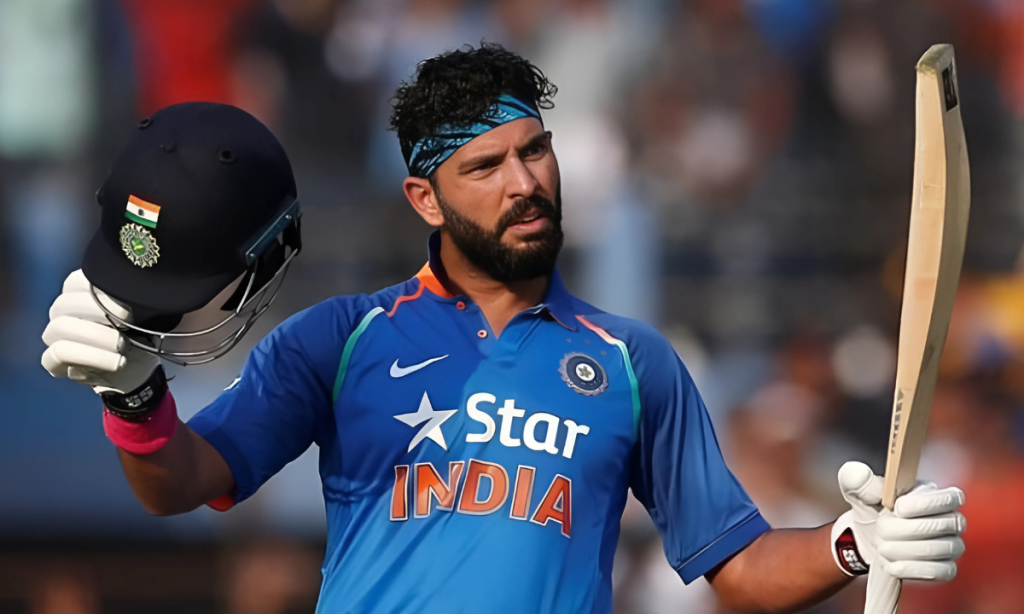Indian Cricketers Who Didn’t Get A Farewell Match: In the world of cricket, where every match can be a spectacle, the farewell game of a cricketing legend is often a moment of both celebration and melancholy.
It’s a time for fans to bid adieu to their heroes on the field, witnessing one last performance, one last ovation. However, not all legends get this ceremonious exit.
This article reflects on three of India’s cricketing giants who, despite their monumental contributions, did not receive the farewell they arguably deserved.
MS Dhoni
Mahendra Singh Dhoni’s retirement from international cricket came as quietly as the man himself.
Known for his composure under pressure and his strategic captaincy, Dhoni led India to numerous victories, including the 2007 T20 World Cup, the 2011 ODI World Cup, and the 2013 Champions Trophy.
His last international match was during the 2019 World Cup semi-final against New Zealand, where a run-out ended not just the match but, unbeknownst to many, his international career as well.
Dhoni announced his retirement from international cricket on August 15, 2020, via social media, a move that shocked fans and cricket enthusiasts alike.
There was no farewell match, no grand celebration, just a simple message from the man who had been the heartbeat of Indian cricket for over a decade.
Discussions about a farewell game lingered, but Dhoni’s decision to retire abruptly and his subsequent focus on the IPL with Chennai Super Kings meant that the moment for a proper send-off passed.
His career, marked by numerous highs, ended without the closure many felt he deserved.
Virender Sehwag
Virender Sehwag was known for his aggressive batting style, which often changed the course of games with his explosive starts.
His records, including two triple centuries in Test cricket, painted him as one of India’s most fearless and innovative batsmen.
Sehwag’s last match for India was in 2013, and after a period of trying to make a comeback through domestic cricket, he announced his retirement in 2015.
Unlike some of his contemporaries, Sehwag never got the opportunity for a farewell match.
His retirement was more of a sudden realization than a planned exit.
The Indian cricket board did not organize a game to honor one of its most entertaining players, leaving fans and Sehwag himself without the ceremonial goodbye that his contributions warranted.
Sehwag’s career, which was as much about flair as it was about records, concluded without the fanfare one might expect for such an influential figure in cricket.
Yuvraj Singh
Yuvraj Singh‘s story is one of triumph over adversity, especially after his battle with cancer.
His performances in the 2011 World Cup, where he was adjudged Player of the Tournament, are etched in cricketing folklore.
Yet, his international career ended without the pomp and circumstance that should accompany a player of his caliber.
Yuvraj’s last match for India was in 2017, and despite being offered a farewell game, he chose not to accept, focusing instead on proving his worth through performance rather than sentiment.
His decision to retire in 2019, announced during the World Cup, was another example of a career ending without the traditional send-off.
Yuvraj’s contribution to Indian cricket, both with bat and ball, especially in high-stake games, deserved a match where fans could bid him a heartfelt goodbye.
However, like Dhoni and Sehwag, he left the international scene with a quiet announcement, his legacy loud but his farewell silent.
The Legacy Without the Last Dance
The absence of farewell matches for these cricketing legends speaks volumes about the unpredictability of sports careers and the evolving dynamics of cricket management.
While some argue that the focus should be on new talent, others feel that recognizing the past is crucial for the sport’s narrative.
These players have left indelible marks on Indian cricket; their records, moments of brilliance, and leadership have shaped not just games but generations of cricket lovers.
The cricket community often remembers these players through their achievements rather than their exits, but the lack of a farewell match leaves a void in the heart of every fan who wished to see one last innings, one last cheer.
Their careers remain celebrated, yet the absence of a final match on home soil for these heroes is a poignant reminder of what might have been, a chapter in Indian cricket history that feels incomplete.

